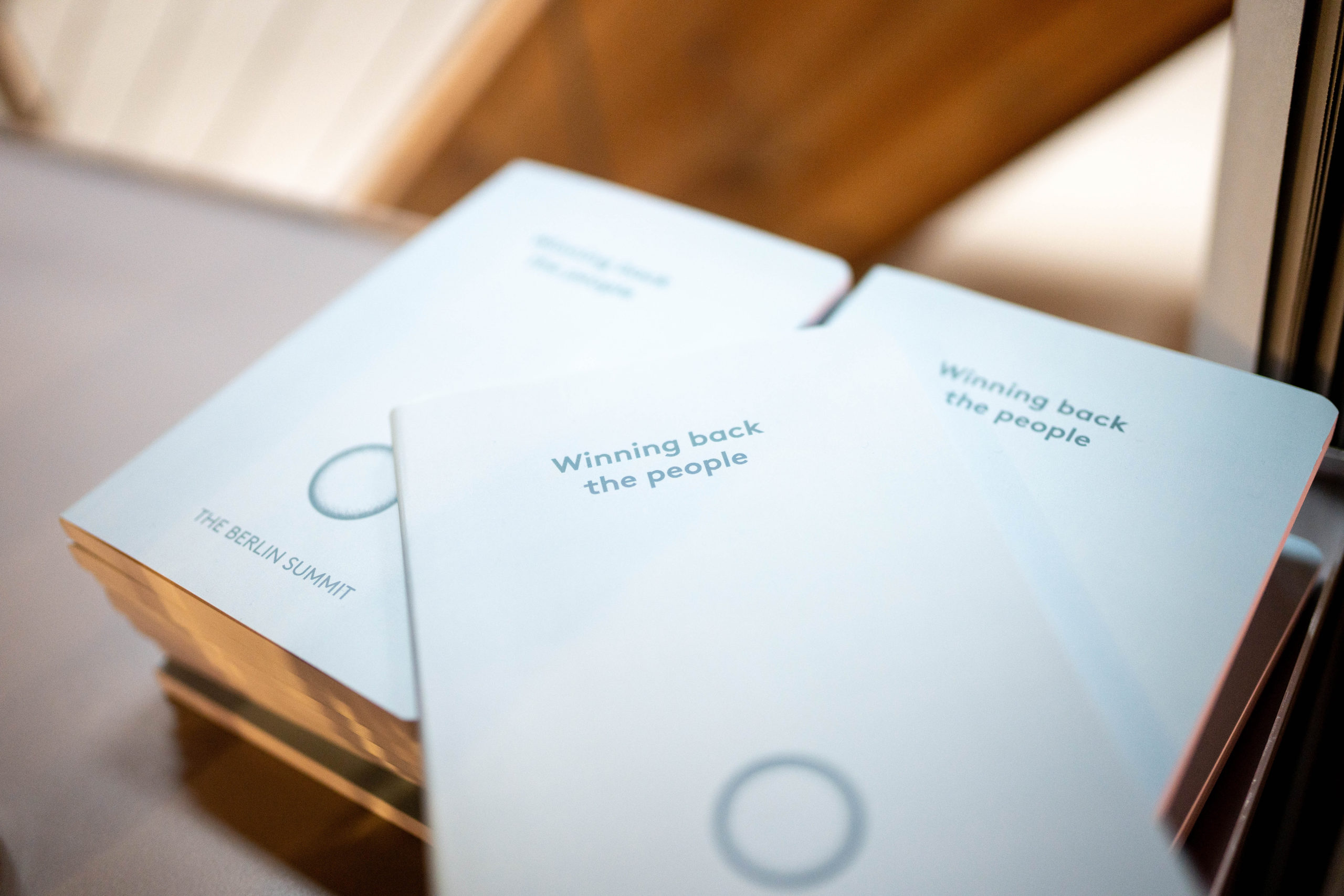NEW PARADIGM
Newsletter: Ways Back from Populism - Summit Re-Lives
From our Forum New Economy newsletter series
BY
THOMAS FRICKEPUBLISHED
15. JULY 2024READING TIME
4 MIN
Dear friends and colleagues,
The good news is that there is a way back from populism. Eight years after the Brexit vote, the British punished the party in the election on July 4 that had once driven the trip to the imaginary miracle world without the EU. On Sunday, the majority of the French voted against the temptations of the radical right-wing Rassemblement National.
The not-so-good news: it is not necessarily the case that the problem of ever new waves of populism will basically solve itself – by the bullies exposing themselves as charlatans. A significant proportion of Americans would repeat the Donald Trump experiment. If it is true that the populists are benefiting from the paradigmatic vacuum left by the failure of the market-liberal model, this could also be because the new answers are not (yet) convincing enough (apart from the fact that the age of candidates does not always help either).
This requires intellectual input and more mature recipes, as we discussed at our Berlin Summit. It also requires social majorities, as Adam Tooze said at the summit. And these must first grow – logically in a new paradigm that is only gradually crystallizing. But of course that is not enough. In the meantime, Joe Biden has lacked support within the US party for a more far-reaching alternative. In France, in the face of diffuse majorities, there is now a threat of what we have been witnessing in Germany for almost three years: a coalition in which one part wants the new, but another seems to be stuck in the old (market liberal) way of thinking. If it is important to have a convincing mission statement to counter populists, it is clear that nothing convincing can come of it.
Perhaps a summer break will help with all of this – at least for reflection; or to gain some distance. We are happy to help you think – with all sorts of new things to read and view on our website.
This week, Makronom published the German translation of the Berlin Declaration – as well as the commentary by Dani Rodrik, Laura Tyson and myself on the question of whether the declaration is a kind of replacement for the market-liberal “Washington Consensus”, which has now also been translated into Arabic, Chinese and Russian. Following its publication in Le Monde before the first round of voting, the declaration itself is now also available in French, as well as in Japanese. Further translations are in progress: in Dutch, Italian, Spanish and Polish.
Since the latest inflation shock, one of the big questions of a new paradigm is to what extent it would not be urgent to redefine the role and control of central banks – and to legitimize their increasingly extensive activities more democratically. The French economic historian Eric Monnet has written a fascinating book on this subject entitled “Balance of Power” – which he discussed this week in our New Economy Short Cut with Peter Bofinger. A re-live and a summary can be found here.
Two further sessions from the Berlin Summit at the end of May are now available as a re-live and summary. In the first, Michael Jacobs presented the model of “institutionalism” as an alternative to the individualism of the market-liberal age. The second was about what kind of new globalization is needed to win back the people: with Adam Tooze, Daniela Schwarzer, Moritz Schularick, Rob Johnson andNicola Brandt – here.
Have a nice summertime,
Thomas Fricke & the Forum New Economy Team
PS: The next newsletter will be published in mid-August.
This text is from our bi-weekly newsletter series. To subscribe, click here.
